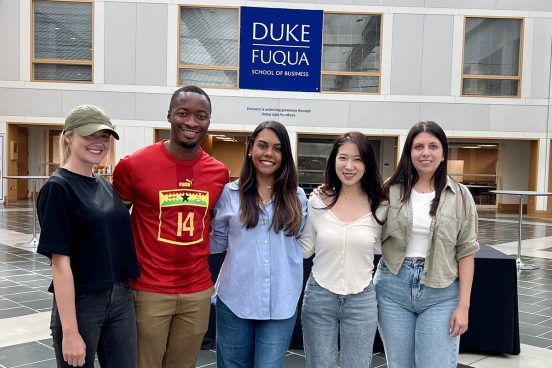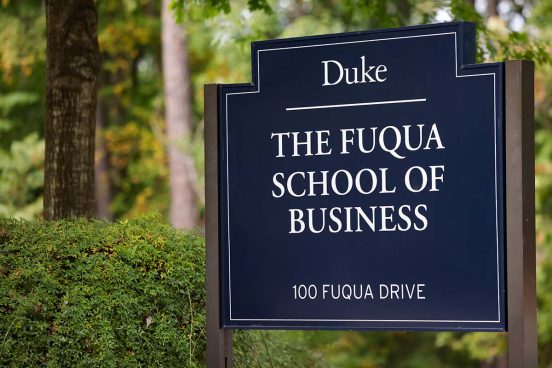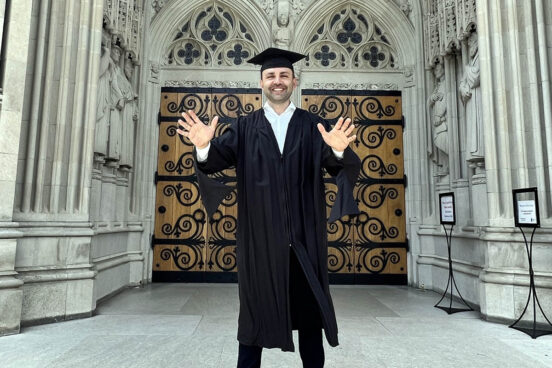Duke Daytime MBA Student Blog

Takeaways from the Fuqua Client Consulting Practicum
Every year, Fuqua offers students the opportunity to participate in experiential learning opportunities through the Fuqua Client Consulting Practicum (FCCP). It allows us to take the skills we learn in the classroom and apply them in the real world.
As a Health Sector Management student with an interest in learning more about the provider space, I knew I wanted to use the FCCP as an opportunity to work with a hospital. After looking through dozens of available projects, I found a great match for my goal of getting hands-on provider-facing experience: a market-sizing project for the Washington County Regional Medical Center (WCRMC) in Sandersville, Georgia.
Together with my team of three additional students (two from my first-year class at Fuqua and one from the Sanford School of Public Policy), we were tasked with helping WCRMC determine whether it should open a facility to provide healthcare services in a surrounding community whose hospital recently closed. The community was struggling with a high rate of chronic health issues and high unemployment, so a new facility would help increase access to care and alleviate some of the unmet demand for healthcare services. Some of our project deliverables included a demographic analysis of the community, determination of market demand and determination of payer mix.
In addition to working on the project, we had weekly seminars during Spring term 1 in which we learned project management skills that could help us navigate and address different issues and roadblocks—such as defining project scope, time management or client engagement issues—that could emerge throughout the course of our practicum.
As I reflect on my project, I have several key takeaways:
- Regular communication with my team and the client was critical. With busy and demanding schedules, it was vital to check in with the entire team to make sure we were on the same page and that our work was directed toward the client’s priorities.
- Health is a concern for more than just hospitals, and people’s health is very closely linked with socioeconomic factors. Besides having negative health outcomes for many residents, Washington County is the poorest in Georgia and has underachieving schools. These social determinants of health, combined with lack of access to healthcare services, contribute to high rates of preventable chronic diseases.
- As MBA students, we gain the necessary skills to help our client make a sound business and societal decision. I feel empowered and excited by the work that our team did, and know that I would not have had as sophisticated a grasp on the project before studying at Fuqua.
- Experiential learning is a key component to the student experience at Fuqua. Translating what we learn in the classroom to real-life situations is exactly why we came to Fuqua and what makes our classes all the more meaningful.



